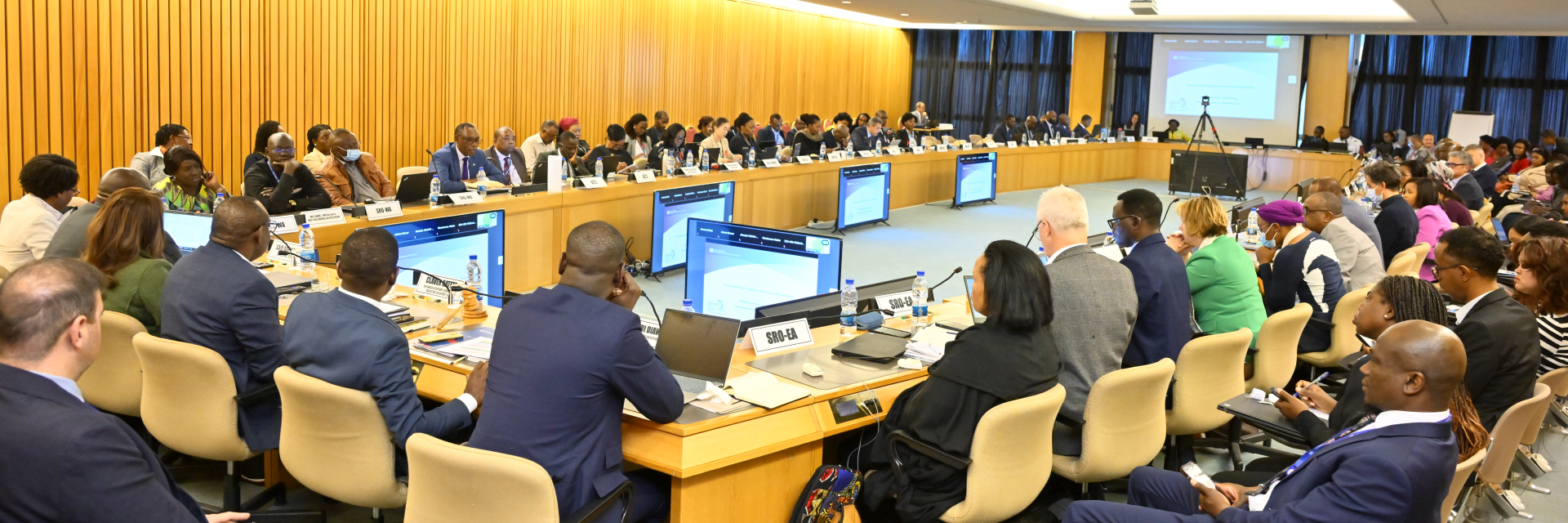Addis Ababa, 7 December 2024 (ECA) - The Economic Commission for Africa (ECA) continues to successfully support African countries to improve the socio-economic well-being of the people, an end-of-year Accountability and Programme Performance Review Meeting (APPRM) of the commission has revealed.
The APPRM is an ECA platform that fosters accountability and good governance by evaluating performance and identifying areas for improvement. The 2024 end-of-year APPRM, held in Addis Ababa from December 2nd to 6th, reviewed the year's performance, highlighted key achievements and discussed challenges. The theme was "Enhancing Performance for Results: Lessons from Annual Reporting for Better Planning."
The ECA supports African governments to enhance their socio-economic conditions by assisting in the development and execution of various initiatives through technical assistance, research for policymaking, and skill development. The Commission encourages partnerships between governments, businesses, and communities, tracks progress, identifies areas needing support, raises awareness, and promotes citizen engagement. The current focus is on supporting Agenda 2030 and Agenda 2063.
Thus, some of the key achievements in 2024 include supporting the establishment of a Special Economic Zone (SEZ) for NPK fertilizer production in the Republic of Congo, which aims to enhance agricultural productivity and boost exports. Additionally, there is a focus on developing strategies for the African Continental Free Trade Area (AfCFTA), specifically for the Arab Maghreb Region (AMU), which emphasises improving trade relations and economic cooperation in Morocco.
Burundi, Djibouti, and Kenya are being aided to prioritise green trade in order to seize opportunities in green value chains and address climate change adaptation needs. This includes initiatives for sustainable agricultural practices and eco-friendly technologies. While Burkina Faso, Niger, and Togo are incorporating demographic dividend considerations into their national budget documents for 2025, focusing on the potential economic benefits of a youthful population to transform this demographic advantage into tangible growth and development.
Further to that, ECA focused its support in the area of blue and green economy initiatives, which led to the launch of the East African Community (EAC) Blue Economy Strategic Plan to promote the sustainable management of marine resources, as well as awareness creation on financing strategies for climate action and support for equitable energy transitions in Southern Africa. Additionally, there was progress in creating an integrated trade-in-value database involving Cameroon, Côte d'Ivoire, Nigeria, and Senegal.
Others included support for Ethiopia to launch an interbank market that aims to enhance the country's capital and drive economic growth, Tanzania to adopt an interest rate-based monetary policy framework, and Nigeria - Kaduna State Government, KADRIMA, in collaboration with the Pension Bureau, to implement the Pensioner Verification application.
ECA again provided technical support for digital transformation by modernising statistical systems in several African countries and offered support for some African countries on carbon markets by improving data collection for emissions. This aligns with the African Union Commission's carbon pricing decree to create a carbon emissions framework. ECA's initiatives help countries meet regulations while promoting economic growth and environmental sustainability.
Mr. Claver Gatete, the Executive Secretary of ECA, addressing the closing ceremony of the 5-day meeting, praised the team's efforts, noting that it would greatly improve the lives of people across the continent.
He called for enhanced coordination and collaboration among the ECA and stakeholders to ensure that much better results are achieved for the continent in the subsequent years.
Mr. Gatete indicated that such a successful result also placed more expectations and work on the Commission and, therefore, urged the staff to gird their loins to deliver more results in the coming year.
Mr. Said Adejumobi, Director of Strategic Planning, Overview and Results Division (SPORD), the responsible outfit for the APPRM intimated that the ECA will need to support African countries facing macroeconomic challenges, especially during their negotiations with the IMF and World Bank.
He advocated for enhanced research databases to support development initiatives and called for a corporate approach to optimise value chain projects.
Mr. Said Adejumobi also called for stronger engagement on social policy issues, specifically targeting the Gender and Development Index, disability inclusion, and urbanisation.
He stressed the need to follow up on the Summit of the Future outcomes—PACT for the Future and the Global Digital Compact—by coordinating efforts among governments, the private sector, and civil society to implement these commitments effectively.
Issued by:
Communications Section
Economic Commission for Africa
PO Box 3001
Addis Ababa
Ethiopia
Tel: +251 11 551 5826
E-mail: eca-info@un.org

